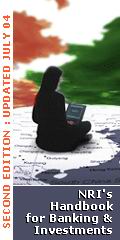|
|
ASIAN CRISIS ANNIVERSARY: Growth, stability recovered but no room for complacency; Moody's
Moody's Investors Service says, in a series of reports, that 10 years since the Asian financial crisis, the region's economies and markets -- after experiencing the huge downturns and shake-outs in confidence triggered by the Thai baht's devaluation in July 1997 - have recovered their growth and stability.
Some of the hallmarks of this new landscape include supportive macro-economic factors, such as record foreign exchange reserves, current account surpluses and moderate inflation. Regulation and corporate governance have improved, while foreign exchange regimes have become much more flexible.
Furthermore, the region's banking systems have undergone significant changes, including achievement of the healthiest credit metrics in a decade and the establishment of more sophisticated and rigorous risk management systems. Moody's ratings for individual banking systems in Asia are either stable or stable to positive.
A replay of 1997 is unlikely, given the changes which have occurred, and it is also important to note that Asia has overcome other shocks since July 1997, including the tech meltdown in 2000, the terrorist attacks of September 11, the Bali bombings, the SARS scare and more recently bird flu.
However, while there is much to feel good about, complacency and searches for new paradigms need to be eschewed. Structural deficiencies remain and, if any thing, the lesson on this 10th anniversary - as the various papers enclosed in this Moody's report show - is not what has been done, but what still needs to be done. In other words, reform must continue.
Pierre Cailleteau, a Moody's Senior Vice President, says in his report, "Asian Crisis 10 years after: what we know, what we think we know and what we do not know," part of the Moody's new International Perspectives series, that as the lessons of the crisis were being learnt, the world economy has embarked on a major, probably historical change. Consequently, some of the lessons learnt these last 10 years may become obsolete and new risks may have emerged. It is therefore important to be candid about what we know and don't know in terms of crisis management and resolution. In another recent report, "Exchange of Perspectives," Moody's publishes the findings from Pierre Cailleteau's discussion with the Managing Director of the IMF at the time of the crisis, who explains that the international community needs to do more to equip itself with the means to avert and manage modern financial crises. Currently, it is still approaching the 21st century with old-style 20th century methods.
Deborah Schuler, a Moody's Senior Vice President, says in her special comment entitled "Asia's Banks -- 10 Years Since the Crisis," published today, that Asia's banks now occupy a stronger position, in view of their good earnings and financial fundamentals, and should take the opportunity to continue with reform. But time may be running out as the current economic cycle could well peak in the next few years.
( This is press release of Moody's)
CLICK FOR MORE FEATURES & STORIES
|
|



|




